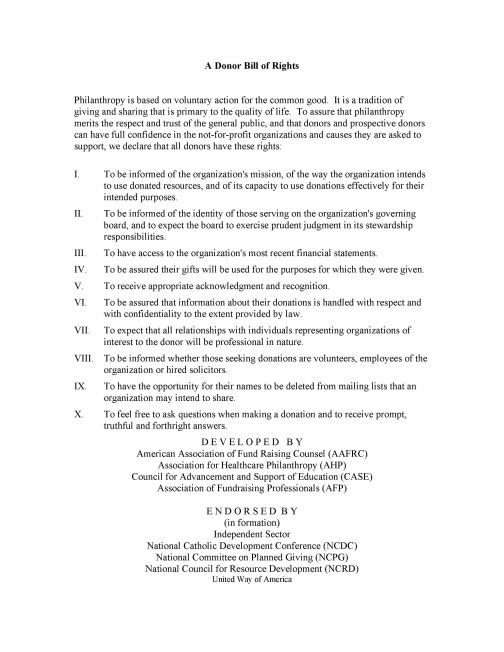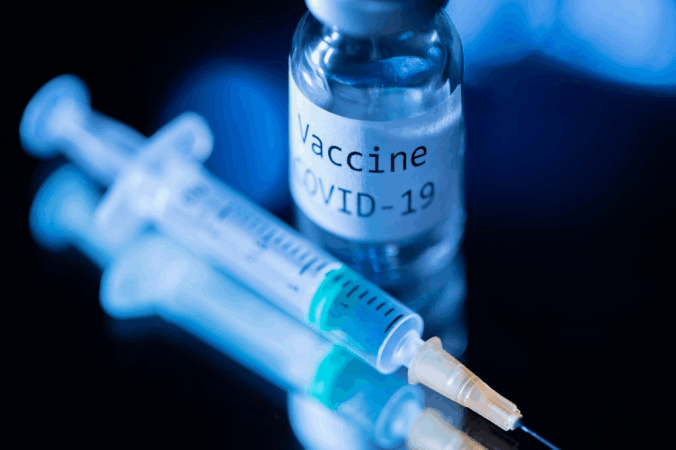A Donor Bill of Rights

Both Pfizer-BioNTech and Moderna Emergency Use Authorization COVID-19 vaccines work together to protect you from COVID-19 infection. This fact sheet contains very vital information to help you understand the risks and benefits of Pfizer-BioNTech and Moderna COVID-19 vaccines.
WHAT YOU NEED TO KNOW BEFORE YOU GET THE COVID-19 VACCINES
• Both the vaccines are administered as a two-dose series (3 weeks apart for Pfizer-BioNTech and 1 month apart for Moderna), into the upper arm of your muscle.
• The vaccines may not protect everyone.
What should you mention to your vaccination provider before you get the vaccine?
• Tell your vaccination provider about ALL of your medical conditions, including if you:
✔ Have any allergies
✔ Have fever
✔ Have a bleeding disorder, or are on a blood thinner
✔ Are immuno-compromised, or are on a medication that affects your immune system
✔ Are pregnant or plan to be pregnant
✔ Are breastfeeding
✔ Have received another COVID-19 vaccine
Who should get the vaccines?
The Food and Drug Administration (FDA), has authorized the emergency use of Pfizer-BioNTech and Moderna COVID-19 vaccines in individuals 16 years of age and older (including those over 65 years)
Who should not get the vaccines?
• You should not get the vaccines if you:
✔ Had a severe allergic reaction after a previous dose of this vaccine
✔ Had severe allergic reaction to the ingredients of this vaccine
What are the ingredients in the Pfizer-BioNtech COVID-19 vaccine?
• The PfizerBioNTech COVID-19 vaccine includes the following ingredients:
✔ mRNA lipids ((4-hydroxybutyl) azanediyl) bid (hexane-6, 1-diyl) bis (2-hexyldecanoate), 2 [(polyethylene glycol)-2000]-N, N-ditetradecyl acetamide, 1,2-Distearoyl-sn-glycero-3- phosphocholine, and cholesterol), potassium chloride, monobasic potassium phosphate, sodium chloride, dibasic sodium phosphate dehydrate, and sucrose.
How are the vaccines given?
• Both Pfizer-BioNtech and Moderna COVID-19 vaccines will be given to you as an injection in the upper arm muscle.
What are the benefits of receiving the vaccines?
• In an ongoing clinical trial, the two vaccines have been shown to prevent COVID-19 infection following 2 doses given 3 weeks apart for Pfizer-BioNTech and 1 month apart for Moderna. Although the duration of protection against COVID-19 is currently unknown.
What are the risks of the COVID-19 vaccines?
• Side effects that have been reported include:
✔ Injection site pain
✔ Tiredness
✔ Headache
✔ Muscle pain
✔ Chills
✔ Joint pain
✔ Fever
✔ Injection site swelling
✔ Injection site redness
✔ Nausea
✔ Feeling sick
✔ Swollen lymph nodes (lymphadenopathy)
There is a slight chance that the two vaccines could cause a severe allergic reaction. A severe allergic reaction would usually occur within a few minutes to one hour after getting a dose of the vaccine. For this reason, the vaccination provider may ask you to stay at the place where you received your vaccine for monitoring. Signs of severe allergic reactions include:
✔ Difficulty breathing
✔ Swelling of the face and throat
✔ A fast heartbeat
✔ A bad rash all over your body
✔ Dizziness and weakness
What if I decide not to get the vaccine?
It is absolutely your choice to receive or not to receive COVID-19 vaccine. Should you decide not to receive it, it will not change your standard of medical care.
Will the vaccine give me COVID-19?
No, both the Pfizer-BioNTech and Moderna COVID-19 vaccines do not contain SARS-CoV-2 and cannot give you COVID-19.
Keep your Vaccination Records
When you get your first dose, you will get a vaccination card to show you when to return for your second dose
Where will my vaccination information be recorded?
Your vaccination provider may include your vaccination information in your state/local jurisdiction’s immunization information system or other designated systems.

Made with Mobirise - Read more